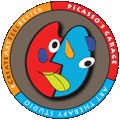


TIPS FOR TEACHING CONFLICT RESOLUTION
Active Listening: Encourage your children to practice active listening. This means paying full attention to the speaker, not interrupting, and showing empathy by acknowledging their feelings and viewpoints.
Problem-Solving Skills: Walk your children through the steps of effective problem-solving. Help them identify the issue at hand, think of various solutions, and decide together on the most appropriate resolution.
Compromise and Negotiation: Highlight the significance of finding a middle ground. Teach your children how to negotiate with others and make compromises that are acceptable to all parties involved.
Use of "I" Statements: Instruct your children on how to use "I" statements to express themselves clearly and respectfully. This technique helps them convey their feelings without casting blame or causing defensiveness.
Developing Empathy: Foster an environment where empathy is valued. Encourage your children to consider how their actions affect others and to show understanding towards different perspectives.
Setting Boundaries: Establish clear boundaries and guidelines for resolving conflicts. This ensures that everyone knows what's expected and provides a framework for respectful and constructive dialogue.
Modeling Behavior: Lead by example in conflict resolution. Show your children how to engage in respectful communication, listen actively, and approach problems with a level head.
Apologies and Forgiveness: Emphasize the importance of sincere apologies and the power of forgiveness. Encouraging these practices helps build strong, healthy relationships based on mutual respect and understanding.
By teaching these essential skills, you're preparing your children to handle disagreements in a mature, effective way, setting them up for successful interactions throughout their lives.
Navigating conflicts effectively is a vital life skill that children can begin learning at an early age. As parents, you have the unique opportunity to guide your children through the complexities of interpersonal relationships. By teaching them how to resolve disagreements constructively, you're not only helping them in their current interactions but also setting the stage for their future as adept communicators. The following tips are designed to help you instill key conflict resolution skills in your children, fostering an environment of understanding, respect, and cooperation within your family and beyond. These strategies will empower your children to approach conflicts with confidence and poise, ensuring they are well-equipped to handle whatever challenges may arise as they grow and develop.









